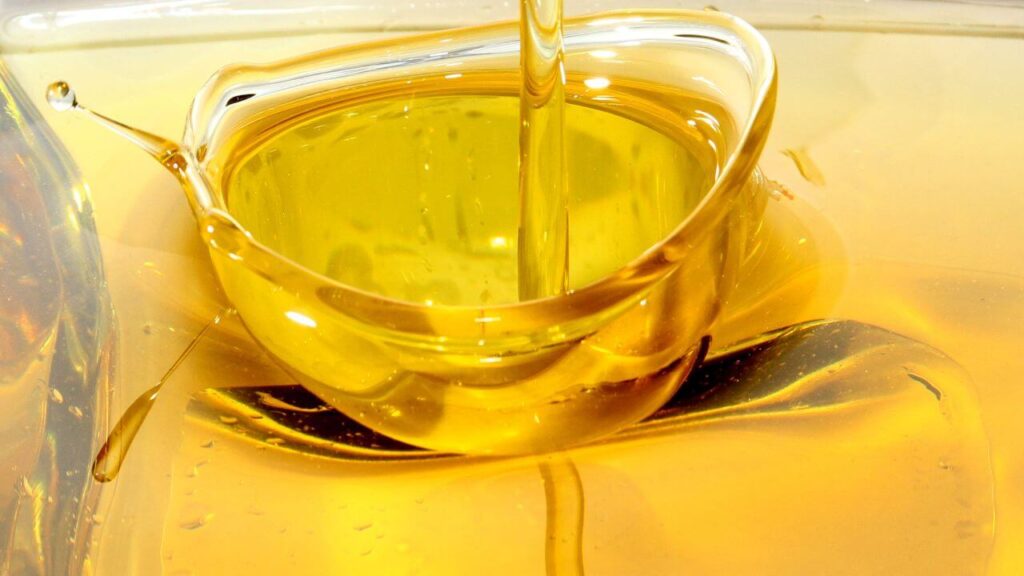Whether in your car or at a restaurant, you have most likely encountered oil when dealing with mechanical devices and cooking. But what do you do with the used oil? Have you ever considered flushing it down the toilet?
While one might expect this to be a bad idea, many people need to consider the potential consequences of doing so.
Before deciding if flushing old oil is an effective way of disposal, let’s take a closer look at why doing so can be dangerous and potentially costly — both for our environment and wallets!
What Happens If I Pour Oil Down The Toilet?
Pouring oil down the toilet may seem like a convenient way to get rid of used cooking oil and motor oil, but it is quite dangerous and can lead to significant problems for the wastewater system. Oil does not mix with water; it can clump inside the drains or pipes in the home, making drainage or flushing impossible.
Furthermore, it will eventually travel through your home’s sewer line, blocking other lines and leading to unpleasant backups from plumbing fixtures such as kitchen sinks or bathtub drains.
This is a significant nuisance and often requires timely and expensive professional repairs. Therefore, if you use motor oil in your vehicle, be aware that pouring any residual oil down the toilet is a hazardous practice that will create more problems than it solves.
Also Read:
What Happens If You Flush One Tampon Down The Toilet
What Happens If You Flush Plastic Down The Toilet
Can You Flush Oil Down The Toilet?
Do you have enough used cooking oil after frying up food for your family? It may seem like an easy solution to flush it down the toilet, but you should not do this.
Oil is non-biodegradable and will stick together in the pipes, causing significant clogging issues and even putting our planet at risk. So yes, it’s a clear no.
You can take many steps to dispose of used cooking oil responsibly so that it doesn’t pollute our environment.
These include mixing the oil with absorbent ingredients such as cat litter or paper towels, pouring it into a sealed container before disposing of it, reusing it by filtering it out and heating it again, or recycling your used cooking oil at a local facility.
Taking these mindful steps can ensure that our environment remains clean and healthy for future generations.
Related Articles:
Can I Flush Food Down The Toilet
Can You Flush Tobacco Down Toilet
Can You Flush Cereal Down The Toilet
Can You Flush Toilet Paper In South Korea?
Can Oil Clog A Toilet?

Can oil clog a toilet? While it isn’t common for oil-based products to cause a blocked toilet, the truth is that it can indeed happen.
When you flush an oil-based product such as grease, lotion, or even dental floss down the toilet, it acts like glue and binds with whatever else may have gone down. This ‘glue’ has the potential to cause severe blockages in both your pipes and/or your septic tank.
On top of this, using excessive amounts of toilet paper makes it even more likely that any oil-based products will cling to them and cause a blockage.
To avoid these annoying problems, avoid flushing items like oil down your toilet, and ensure you don’t overuse toilet paper too much!
Is It Ok To Flush Grease Down The Toilet?
Flushing grease down the toilet is a common practice, but it isn’t necessarily safe. Grease can travel through your pipes and eventually enter into public sewage systems, where it can cause serious blockages, leading to costly repair bills that have to be paid by someone.
Homeowners should take care when disposing of grease since it can build up over time and cause major problems in plumbing systems.
If you need to flush small amounts of grease, try diluting it with warm water or dispose of it in a garbage container. Taking small steps like this will help ensure our plumbing systems are safe for future generations.
How Do I Dispose Of Cooking Oil?

Disposing of used cooking oil can be a tricky process. If done incorrectly, the cooking oil can cause clogs in sewage systems and harm the environment.
My this guide will provide you with a step-by-step procedure for properly disposing of used cooking oil.
Step 1: Allow Your Cooking Oil To Cool Completely
Before disposing of your cooking oil, it is important to ensure it has cooled off completely. Hot or warm cooking oil can be dangerous and should not be handled or disposed of until it has cooled to room temperature. Let the oil cool off overnight before proceeding with the next steps.
Step 2: Separate Solid Food Particles From The Oil
After your cooking oil has cooled, use a mesh strainer or cheesecloth to separate solid food particles from the oil. This will help prevent clogs in your drain when you dispose of the used cooking oil later. Once all solid particles have been removed, discard them into the trash bin.
Step 3: Pour The Cooking Oil Into A Container With A Lid
After separating solid food particles from the used cooking oil, pour it into an airtight container such as an old coffee can or glass jar with a lid.
This container should not be made out of plastic as this could potentially leech chemicals into the fat when left at room temperature for too long.
Store this container in a cool and dry area until you can take it to a recycling center or collection site that accepts used cooking oils and fats.
Step 4: Take The Container To An Accepted Collection Site Or Recycling Center
Once you have stored your used cooking oil in an appropriate container and allowed it to sit for several hours (or overnight).
Take your container to an accepted collection site or recycling center near you that collects kitchen grease and oils for reuse and proper disposal methods.
If there are no collection sites near you, contact your local government offices, sanitation services, or waste management companies, who may know where one is available.
Once your container is emptied at this site, rinse it thoroughly with water before discarding it so that no residual grease remains inside that could harm wildlife if discarded improperly into nature (such as rivers).
How Do You Dispose Of Leftover Frying Oil?
Cooking with oil is a great way to add flavor and texture to your dishes. But what do you do when you’ve finished cooking?
You need to know how to safely dispose of the leftover frying oil so it doesn’t cause any harm to your home or the environment.
Here’s a step-by-step guide on responsibly and safely getting rid of used cooking oil.
Step 1: Let the Cooking Oil Cool Down
The first thing you need to do is give your cooking oil time to cool down. When you are done using it, please turn off the heat source and let it sit for at least an hour before doing anything else.
As tempting as it may be, never pour hot or warm oil down any drain! This can clog pipes and create an environmental hazard in your community or regionally.
Step 2: Store Your Used Cooking Oil in an Appropriate Container
Once the oil has cooled down, pour it into a sealable metal or glass container. If possible, store the container in a cool place away from direct sunlight until it’s time for disposal.
Do not use plastic containers as they can easily leak or break due to their low melting point when exposed to hot liquids like oils and fats.
Step 3: Reuse The Oil In Another Way
If you don’t want to throw away the used cooking oil, there are other ways to reuse it! For example, you can use it as a lubricant for squeaky door hinges or mix it with birdseed for a tasty snack!
Of course, be sure that you check with local laws before disposing of used cooking oils this way—some places may have restrictions on how these oils should be disposed of properly and responsibly.
Step 4: Dispose Of The Used Cooking Oil Properly
If all else fails and none of the above options are available, look into local waste management centers offering services for disposing of used cooking oils safely and responsibly.
Many cities have designated drop-off locations where all household waste materials are accepted, including used frying oils. Be sure that you call ahead and make sure these places take cooking oils before heading out!
Can Cooking Oil Unclog Toilet?
I know many people believe cooking oil can be used to unclog toilets but let me tell you. Cooking oil does not make a good unclogging agent for clogged toilets. This is because most cooking oils are viscous liquids, meaning they do not have enough power to push through the blockages and break them apart.
Additionally, cooking oil will bond with the toilet’s wastewater, potentially creating a thicker substance that may result in an even bigger clog.
It would also be very difficult to clean up what remains of the oil after use, as much of it will stick to the insides of your pipe walls and could cause future blockages.
If you’re dealing with a blocked toilet, it’s best to leave it to a professional plumber who can safely and effectively unclog it.
Also Read:
Can I Leave Bleach In The Toilet Overnight
Bottom Line
As a final word of advice, never flush oil down the toilet, no matter how small or insignificant you may think it is. Not only can it cause serious harm to your plumbing system and fauna living in your septic system.
But it can also pose negative health effects for people in the environment if wastewater carrying oil is not treated properly.
Ultimately, whether you’re trying to get rid of cooking or motor oil, try finding another disposal method, like recycling or disposing of it in an appropriate container.
By doing this, we can all ensure our environment stays healthy and clean. Thank you for reading!
